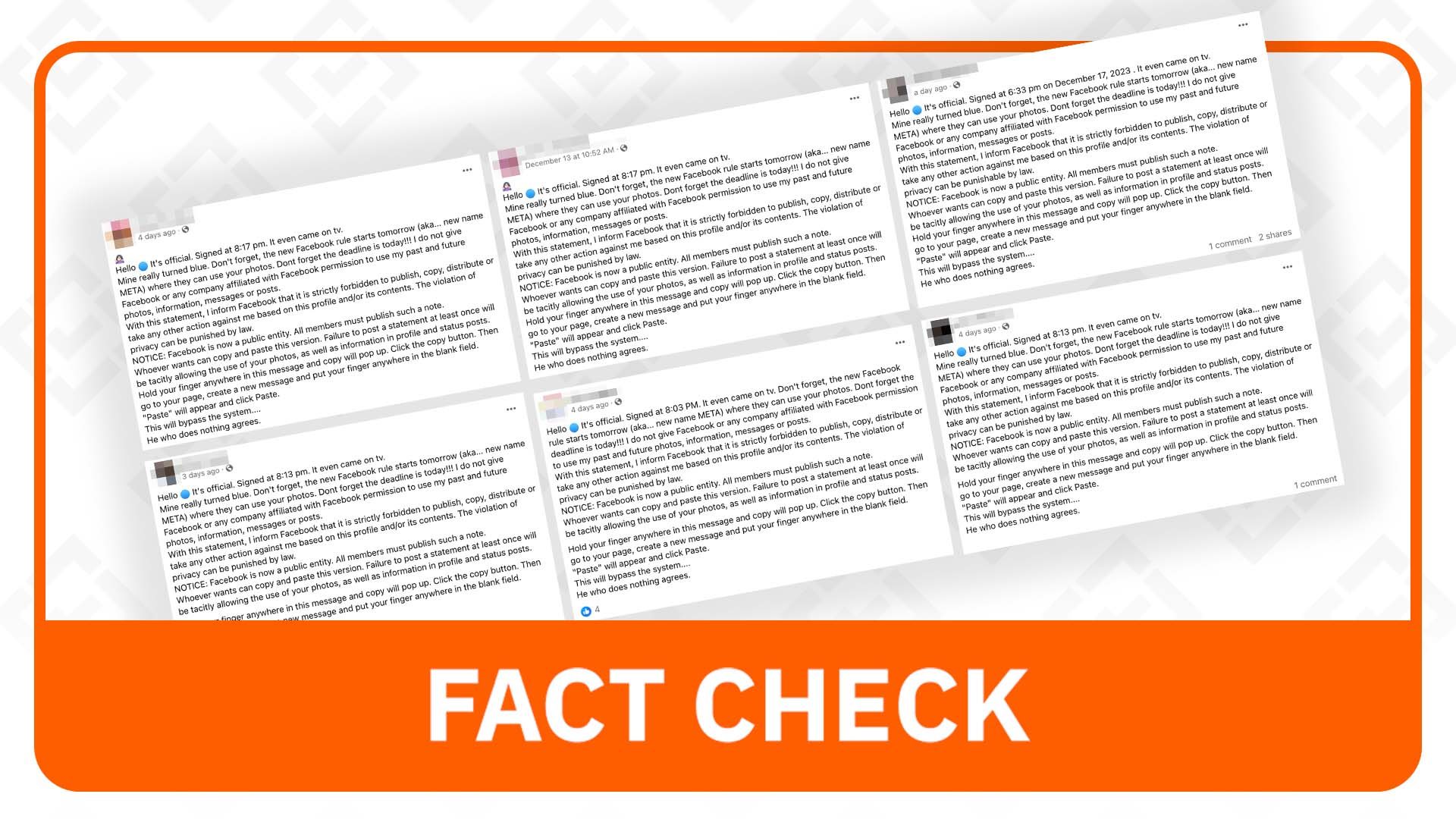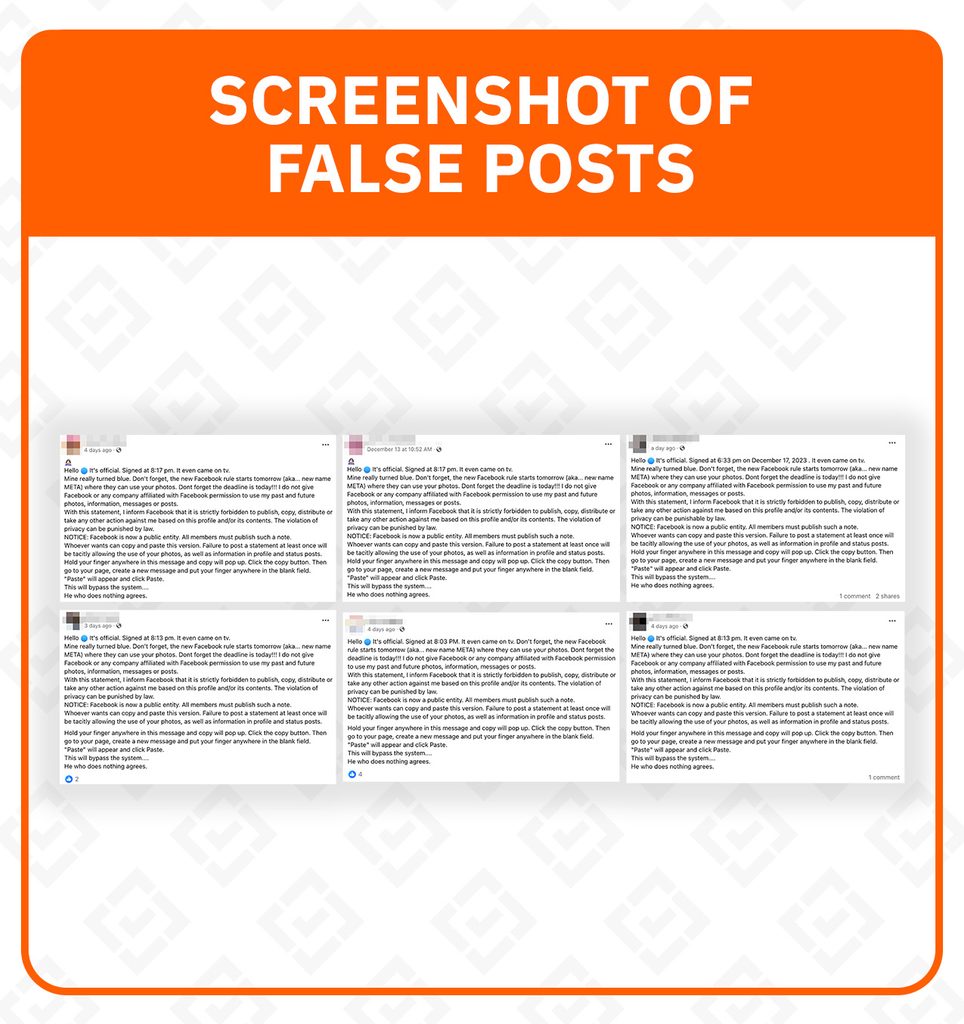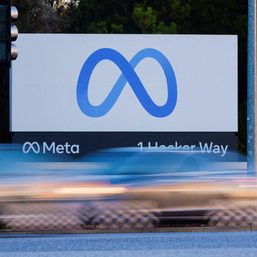SUMMARY
This is AI generated summarization, which may have errors. For context, always refer to the full article.

Claim: Following the change in Facebook’s name to Meta, its users need to publish a notice on their personal pages denying the company permission to publish, copy, or distribute their photos and profile information.
Rating: FALSE
Why we fact-checked this: The post is a recycled claim that first circulated in 2012 and has resurfaced almost every year, with new and paraphrased text added in each new version. Several Facebook users have been reposting the claim earlier this month.

The facts: In November 2021, two weeks after Facebook changed its name to Meta, ABC10 News debunked similar posts claiming that Meta has imposed a new rule and that posting a legal notice can prevent the company from using photos and profile information.
Meta has no new rule that would make user content public, absent the supposed notice. The company had also debunked the claim in 2012.
“Anyone who uses Facebook owns and controls the content and information they post, as stated in our terms. They control how that content and information is shared,” the company said in a fact check.
Posting a notice holds no legal weight and does not affect the terms that users agreed to when they signed up for Facebook, according to fact checks posted by various news organizations in 2016, 2019, 2021, and 2022.
What the privacy policy says: According to its privacy policy, Meta uses information collected from users to provide personalized advertisements, content, and recommendations, such as suggesting videos and reels to watch and communities to join.
According to Meta, it uses profile information, content that a user has created or interacted with across apps, user activities on and off of Meta, and information about a user’s friends, followers, or other connections in Meta products to customize advertisements shown to specific users.
Taking control: The privacy policy says users can control the information they share and with whom. However, some information is always public, such as name, Facebook username, profile picture, and activities on public pages and groups.– Ailla Dela Cruz/Rappler.com
Keep us aware of suspicious Facebook pages, groups, accounts, websites, articles, or photos in your network by contacting us at factcheck@rappler.com. You may also report dubious claims to #FactsFirstPH tipline by messaging Rappler on Facebook or Newsbreak via Twitter direct message. You may also report through our Viber fact check chatbot. Let us battle disinformation one Fact Check at a time.
Add a comment
How does this make you feel?





There are no comments yet. Add your comment to start the conversation.